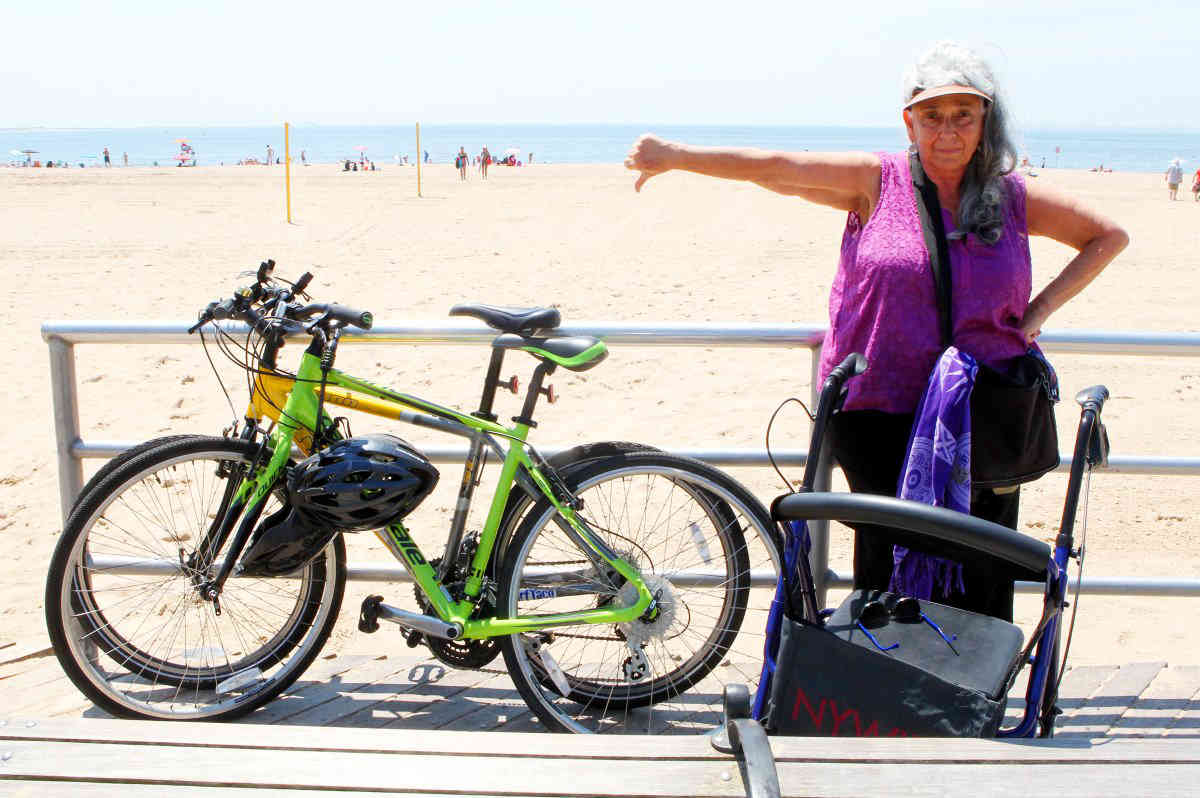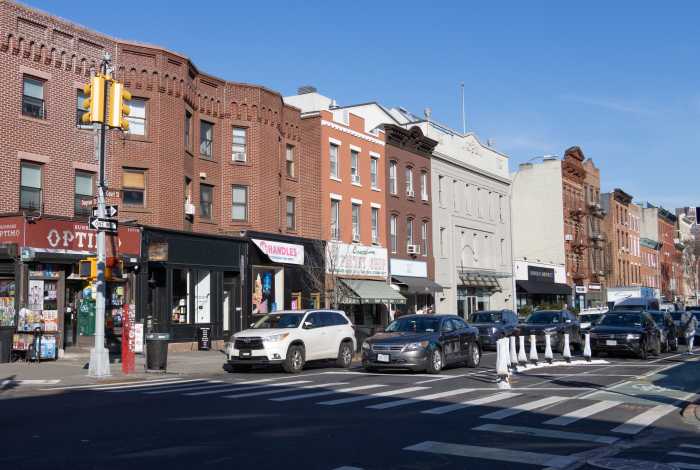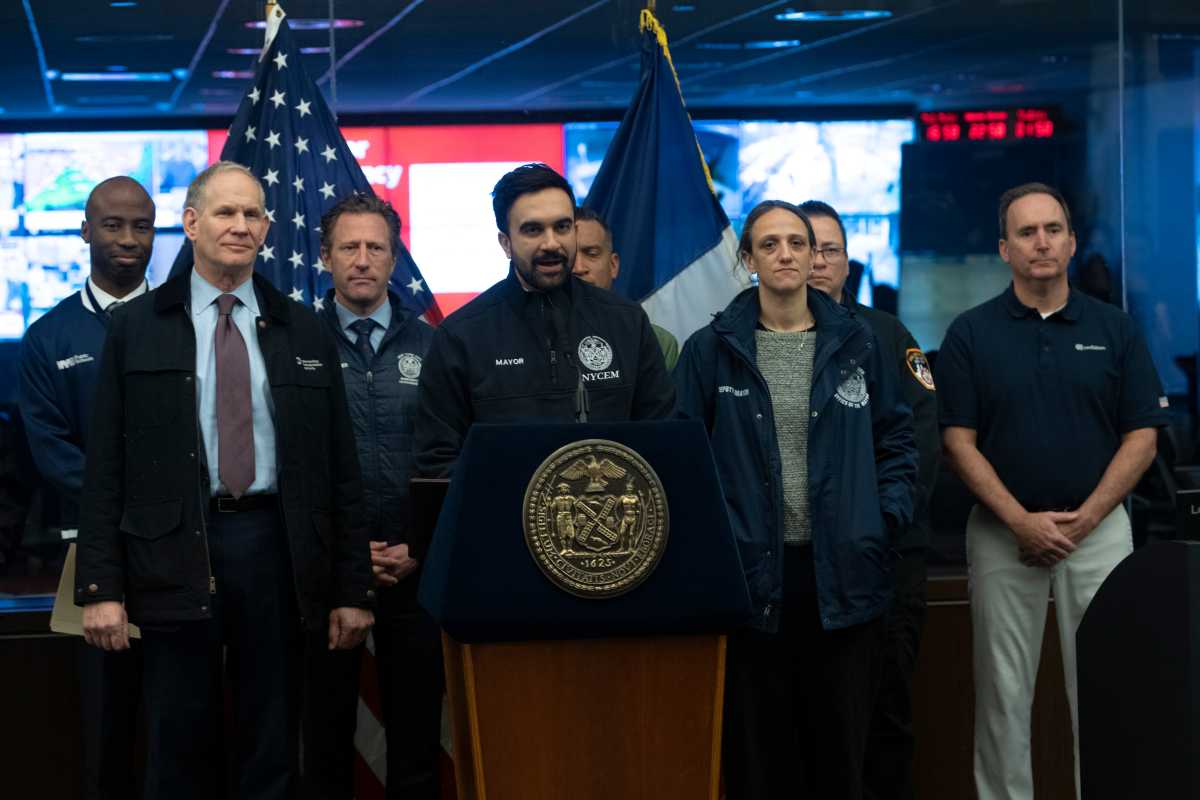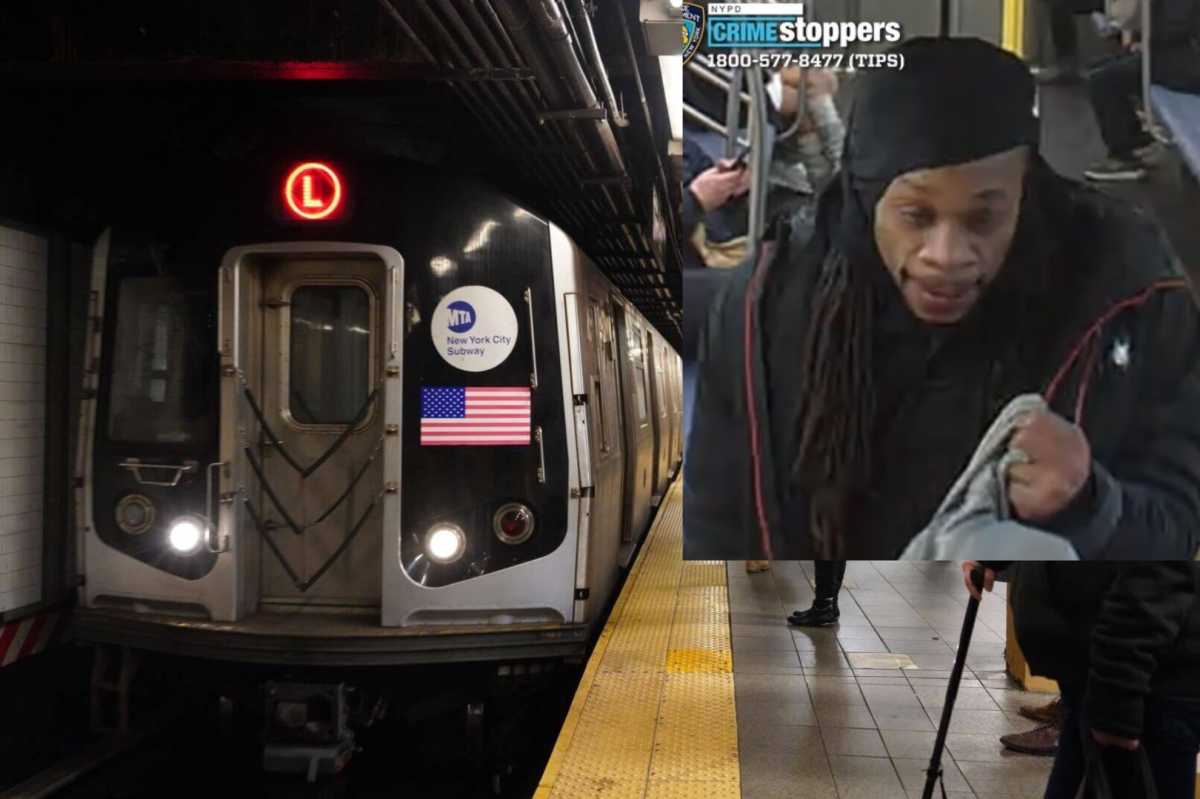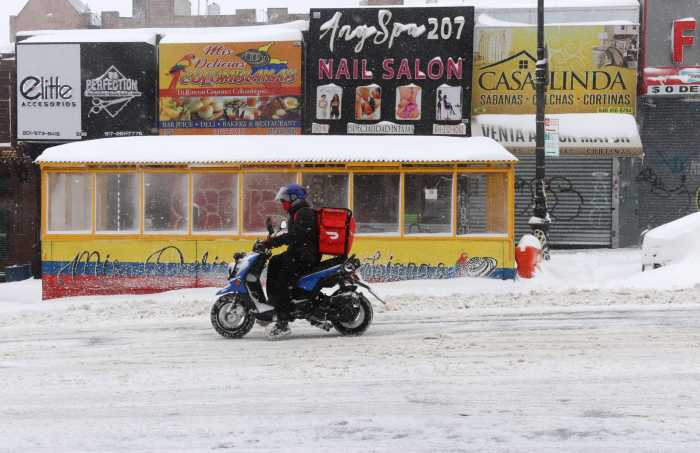They spoke too soon.
The city must put the brakes on its recently announced pilot program to bring 200 dockless bikes to Coney Island this summer, locals and board members told officials at a Community Board 13 general meeting on Wednesday. The neighborhood is already flooded with bikes during the summer, when tourists arrive in droves and careen down the Boardwalk, and adding more two-wheelers will only make things worse, according to the board chairwoman.
“Adding more bikes is a terrible situation, it is not good,” said Joann Weiss. “I cannot have 200 more bikes on that Boardwalk or in the community at this time of year — it’s insane.”
Reps from the Department of Transportation made their first visit to the board to discuss the bike-share pilot program at the June meeting — more than a month after the mayor’s office first announced it on May 24 — saying that it would be a trial so the agency could evaluate the success and safety of the program before determining whether to continue it in the fall. The city will also put bikes in neighborhoods in the distant boroughs of Queens, Staten Island, and the Bronx.
People would be able to find and unlock the 200 dockless bikes via smartphone apps, and rent them for $1 or $2 per 30-minute ride using their cellphones, according to the mayor’s office.
Unlike Citi Bikes, which must be returned to docking stations, the dockless bikes can be ditched anywhere riders please, but the transportation reps said that they expected riders to leave the bicycles parked on sidewalks and out of pedestrians’ way within the neighborhood bike zone, bounded by W. 31st Street, Neptune Avenue, and West End Avenue.
When asked how the city would prevent riders from taking the bikes out of the zone, or abandoning them in the middle of the street, the reps did not have an answer.
Statistics show that having more bikes in an area led to safer overall conditions for cyclists, according to the reps, who cited a 17-percent decrease in cyclists killed or severely injured in bike-rental zones citywide after CitiBike launched in 2013. But board members responded by unanimously passing a motion to send a letter to the Transportation Department’s commissioner and the mayor outlining their strong opposition to the dockless-bike pilot program.
Weiss and District Manager Eddie Mark sent the letter the to transit chief Polly Trottenberg, the agency’s borough commissioner Keith Bray, Mayor DeBlasio, Councilman Mark Treyger (D–Coney Island), and Councilman Chaim Deutsch (D–Sheepshead Bay). Mark and Weiss wrote that they were particularly concerned about the impact the influx of two-wheelers would have on the recently landmarked Riegelmann Boardwalk, where many cyclists are unaware of — or just ignore — the rule forbidding biking in the daytime from Memorial Day Weekend until October 1, since the city doesn’t enforce it.
A rep for the transit agency said officials look forward to reviewing the letter but did not respond to inquiries about the impact the board’s opposition might have on the plan.
The Transportation Department was also mum on where the bikes would be placed, what kind of locking systems the bikes would have, how it would limit riding on the Boardwalk, and who would be liable for injuries to riders and others.
One Brighton Beach resident agreed that the inevitable uptick in Boardwalk bikers would exacerbate enforcement issues, since the police shifted the responsibility for banning daytime cyclists to the Parks Department, which has jurisdiction over the Boardwalk but doesn’t adequately enforce the rule.
“The cops don’t enforce it — the police want to go after people with knives and guns, then it falls to Parks Enforcement Police, and they have their own issues,” said Ida Sanoff.
Another Brighton Beacher said she hoped the board’s opposition would force the city to change its mind, and blasted Transportation Department officials for not getting locals’ feedback before rolling out the program.
“We all are against it, so that might deter them,” said Arlene Brenner. “The whole thing was stupid. They did it without advising from the community.”
Treyger said he shared the board’s concerns, since the neighborhood is already so traffic-heavy — adding that summer road closures for construction would make getting around even more difficult, another challenge the city must take into account.
“While I am strongly supportive of additional multi-modal transit alternatives, given Coney Island’s limited public transportation access, the high level of congestion that we face every summer is exacerbated this summer by massive infrastructure work, road and lane closures, and sidewalks that are being used as construction staging areas,” Treyger told this newspaper.
He also agreed with the board that, whatever benefits the new bike rentals would bring the neighborhood, the program shouldn’t be rolled out without better enforcement on the Boardwalk and closer consideration of conditions on the ground.
“Dockless bike sharing could benefit Coney Island residents, but a pilot program this summer will likely face significant challenges due to the ongoing construction. In addition, I share Community Board 13’s concerns about lax enforcement of the prohibition on bike riding on the Boardwalk. Dockless bike sharing has promise, but it should be rolled out thoughtfully.”


